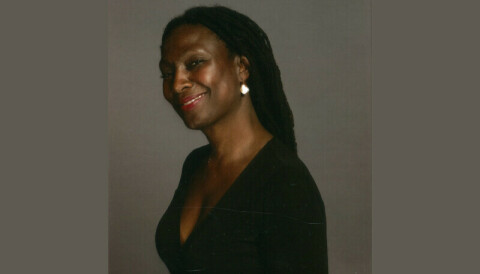
July 14th 2023
Inclusive leaders can make a difference
Anyone who deviates from the 'norm' in the workplace runs the risk of social exclusion. Organizational consultant Astrid Elburg sees inclusive treatment of all talents as a human right. In practice, however, inclusive behavior often turns out to be a wash, so as an executive coach she helps talented, bi-cultural top professionals to relate to a harsh reality. We thought this was an inspiring article by SER Topvrouwen and would therefore like to share it.
Please note: this article was translated using a translator appDiversity is a given; inclusive behavior is a choice
Astrid Elburg helps others with what she really believes in: ensuring that 'diverse talent' can flourish. The fact that the climb to the top has a price applies to every woman who enthusiastically starts a career. “But it applies even more to women of color, and just as much to men of color.” Her cradle was in Suriname, and as a 'migrant child' she has experiential knowledge. There is a lot of attention for diversity and inclusion (D&I) these days - D&I is often even mentioned by companies and organizations as one of the strategic priorities - but Elburg sees that policy in that area does not necessarily lead to solutions. “Diversity and inclusion then become empty catch-all concepts, the D&I policy ends up in a drawer and becomes institutionalized resistance,” she says plainly. It is high time that organizations align their heads, hearts and hands, because despite passionate speeches from leaders about inclusion, reality often turns out to result in misunderstanding, resistance and even exclusion.
“Diversity is a given today, but inclusive behavior is a choice. And that's where things go wrong. Inclusion means ensuring that all talents reach their full potential and that the available potential is unlocked. Almost all companies write on their corporate site that they strive for a broad representation of people of different ethnicity, gender, backgrounds, etc. But in practice we prefer to select people from the same socio-economic class with the same cultural background. Also strange is the implicit message that people with a Randstad accent sound more intelligent than people with a different accent. To obtain a higher position, you will have to comply with all kinds of unwritten codes and mores. You can only solve this by really following inclusive principles and making structural adjustments, but that doesn't happen enough.”
Applause for those who adapt
According to Elburg, the fact that companies usually continue quietly as usual, despite their vision on D&I, is due to a lack of hard consequences. Well, ultimately non-inclusive behavior comes at the expense of ideas and innovation, and those missed opportunities cost money (after all, people who are similar think about the same, while we need broad perspectives to tackle new problems), but that is a threat which companies usually do not involve themselves. “Then people say: 'our top may consist of middle-aged white men, but within that group we are still very diverse.' Or they claim that it is about 'quality', which apparently only has as many check marks as possible in white fellow human beings,” Elburg explains.
Adjustment often works temporarily, Elburg notes, but too often women, bicultural talents (m/f) and other minorities fail because they structurally have to walk on their toes to fit in. “They work hard to be seen and the implicit expectation is that eventually there will actually be room for their unique qualities. Too often this turns out to be a wrong expectation. In the longer term, if you are 'different', you are constantly at war with yourself. That makes you dissatisfied and unhappy, and as an executive coach I see how often this leads to burnouts.” The result: diverse talent drops out of organizations that would flourish if they had the courage not to equate 'different' with 'unsuitable'.”
Civilization must come from organizations
It is great that the individual can learn to survive within the system, but actual inclusion would of course be better. A structural ethical reflection on organizational issues fits in well with this. Elburg is convinced that the top can make the difference. “Leaders should be selected for inclusive thinking and behavior. These are 21st century core competencies, just as you need digital literates at the top. Only in this way can we break with the idea that the behavior of white men automatically equates to quality and actually make inclusive choices. This also includes no longer passing the ball on to minorities. Anyone who does not fully adapt or speak out about bias is told that he or she is too activist, too angry, too emotional, too politically correct, too woke.” Elburg calls these cover mechanisms, ways to disguise the fact that we pay lip service to inclusion and to avoid relating the problem to ourselves. “Inclusive leaders understand that we don't need to empower minorities – they have plenty of power. But then you have to be allowed to be yourself.” The leader of the 21st century has the great task of unlocking that power and putting an end to (unconscious) exclusion for good.
— This is a shortened version of the interview that recently appeared on ser.nl.